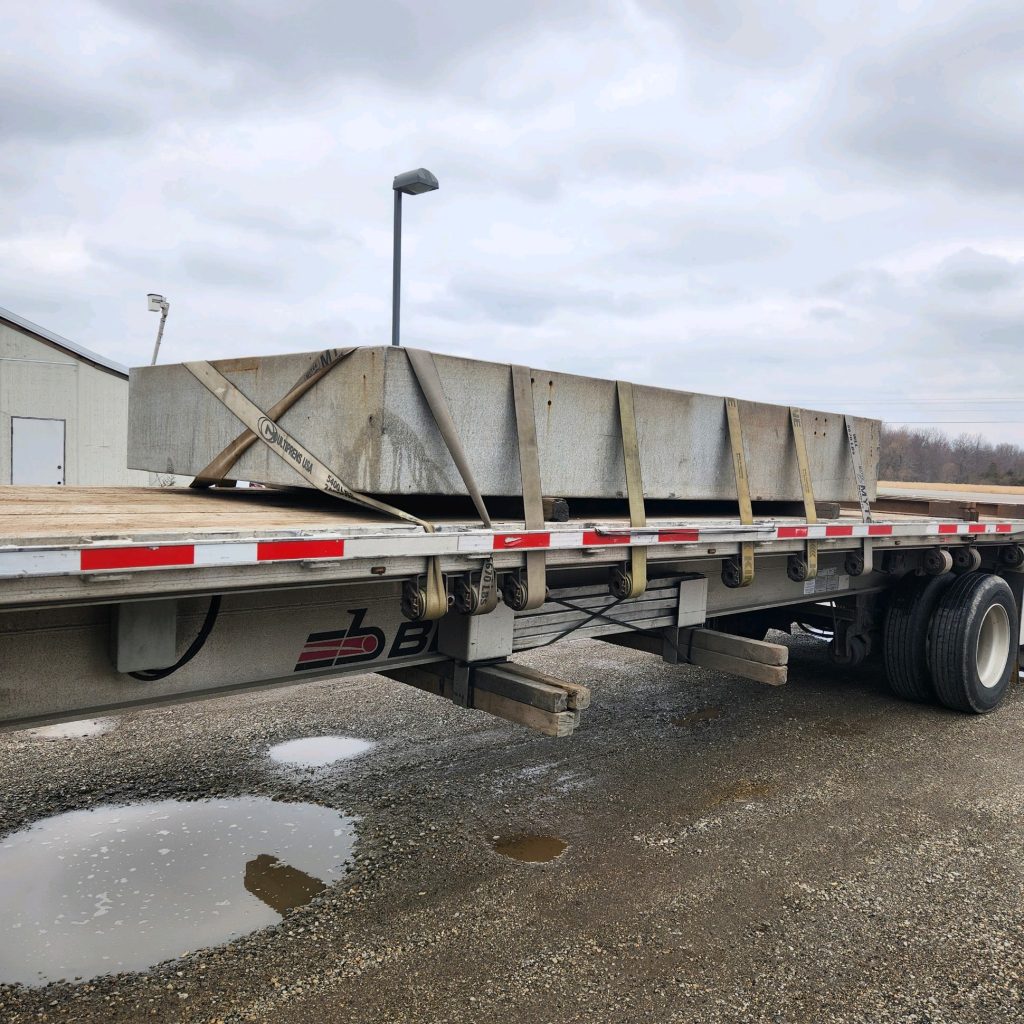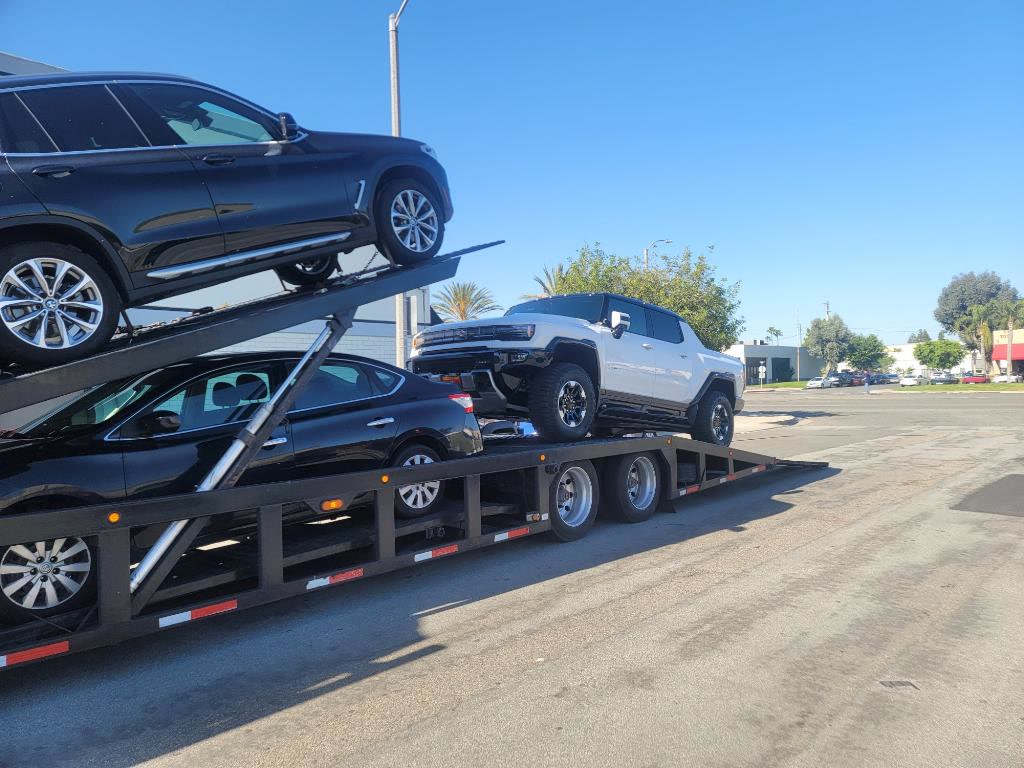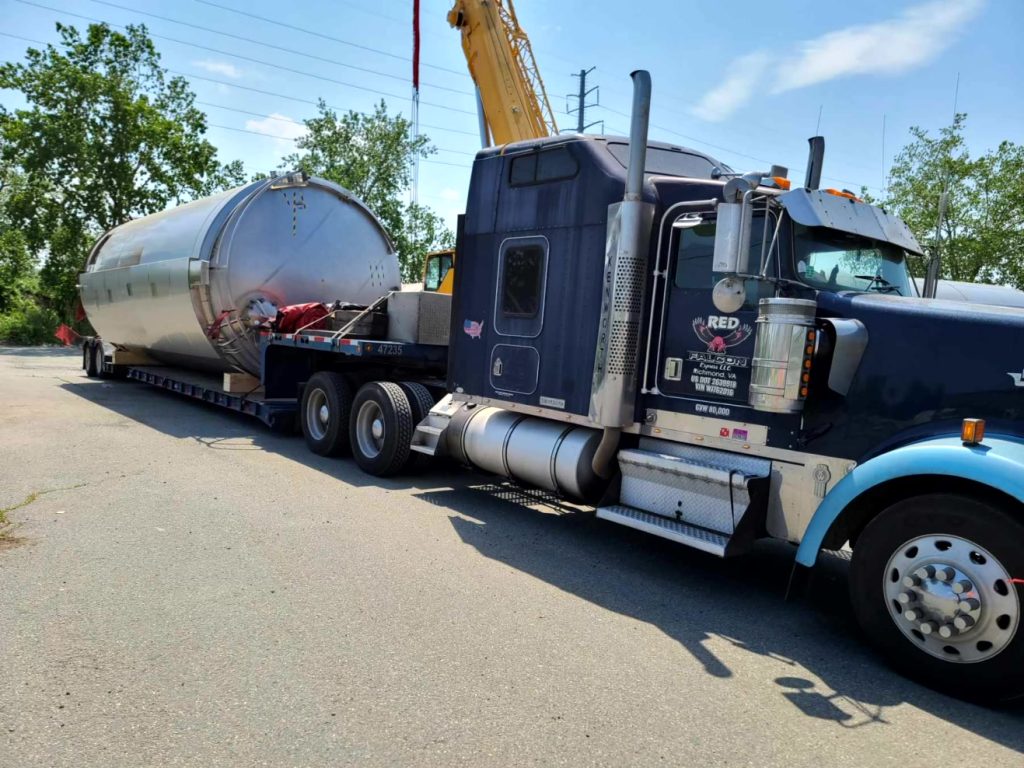What is Specialized Transport?
Freedom Heavy Haul can offer expedited Pickup and Delivery for any size shipment anywhere in the USA. Contact us today for No Hassle, No Pressure Pricing.
Specialized transport is a critical sector within the logistics and supply chain industry, characterized by its ability to handle cargo that falls outside the realm of standard transportation due to size, weight, shape, or the nature of the goods. This form of transportation is essential for industries that require the movement of unique, oversized, or sensitive items, ranging from large machinery to hazardous materials. The intricacies of specialized transport involve not just the physical movement of goods but also adherence to stringent safety and regulatory standards, making it a complex yet vital component of global trade and commerce.
What is Specialized Transport and Its Types
Specialized transportation encompasses a diverse array of services, each designed to meet specific logistical challenges. From flatbed trailers to delicate item transport, this sector caters to a wide range of needs, ensuring that even the most unusual or challenging loads reach their destinations safely and efficiently.
Flatbed and Drop Deck Trailer Transport
Flatbed and drop deck trailers are indispensable in the transportation of oversized or irregularly shaped goods that do not fit within the confines of a standard enclosed trailer.

Commonly used for heavy machinery, construction materials, and large equipment, these trailers offer versatility and ease of loading and unloading, making them a go-to choice for a variety of industries.
Car Haulers: Specialized Auto Transport Solutions
Car haulers specialize in the transportation of vehicles, ranging from personal cars to commercial fleets.

Utilizing specialized trailers that can carry multiple vehicles simultaneously, car haulers are essential for automotive manufacturers, dealerships, and individual clients, ensuring the safe and efficient delivery of vehicles.
Dry Bulk Transportation: Handling Commodities
Dry bulk transportation deals with the movement of commodities in large quantities, such as cement, grains, and chemicals, that are not packaged separately.
This type of transport requires specialized tankers or containers to handle loose materials, making it a crucial part of industries like agriculture, construction, and manufacturing.
Hazmat Transportation: The Challenges and Regulations
Hazmat, or hazardous materials transport, involves moving goods that are potentially dangerous to people or the environment. This category includes chemicals, fuels, and radioactive materials. Given the risks, hazmat transport is heavily regulated and requires specialized equipment and trained personnel to ensure safety and compliance with legal standards.
Load Combination Vehicles: Efficiency in Size and Capacity
Load combination vehicles are designed to maximize cargo capacity and efficiency. They often involve combining multiple trailers or modules to transport large quantities of goods, making them ideal for long-haul transportation.
This approach requires careful planning and adherence to weight and size regulations to ensure safe transit.
Livestock Transportation: Moving Living Cargo
The transport of livestock is a specialized field that involves moving animals such as cattle, pigs, and poultry. It requires not only the right kind of vehicles but also a deep understanding of animal welfare, health regulations, and safety protocols to ensure the well-being of the animals during transit.
Heavy Equipment Transport
Transporting heavy equipment, such as construction machinery, industrial tools, and agricultural vehicles, demands robust and specialized trailers.

These trailers often feature hydraulic systems and reinforced structures to handle the weight and size of such equipment, necessitating skilled handling and routing to navigate roads safely.
Oversized Cargo Transport
Oversized cargo transport is essential for items that exceed standard dimensions, such as wind turbine blades or large industrial machinery. This type of transport requires careful route planning, special permits, and often escort vehicles to manage the challenges of moving exceptionally large loads on public roadways.
Sensitive and Fragile Item Transport
This specialized service caters to the transport of items that are delicate or sensitive to environmental conditions, such as medical equipment, electronics, and fine art. Employing climate-controlled environments, cushioned packaging, and securement techniques, this transport method ensures that fragile items are protected throughout their journey.
Regulatory and Safety Considerations in Specialized Transport
The specialized transport sector is governed by a complex web of regulations and safety standards, which are critical to ensuring the safe and compliant movement of goods. Understanding these regulations and implementing stringent safety protocols is paramount for companies operating in this domain.
Navigating Hazmat Transportation Regulations
Hazmat transportation is one of the most heavily regulated sectors within specialized transport. It requires adherence to strict guidelines set by various regulatory bodies to prevent accidents and ensure public safety. These regulations cover everything from packaging and labeling to transport routes and emergency response plans.
Safety Protocols in Livestock and Heavy Equipment Transport
The transportation of livestock and heavy equipment presents unique safety challenges. For livestock, this includes ensuring animal welfare and controlling the spread of diseases. In heavy equipment transport, the focus is on securing loads properly and navigating roads with oversized cargo, often requiring special routing and escort vehicles.
Ensuring Compliance in Oversized and Fragile Item Transport
Oversized and fragile item transport demands meticulous planning and execution to comply with legal size and weight limits and to protect delicate cargo from damage. This involves acquiring the necessary permits, using appropriate packing materials, and employing specialized handling techniques.
Global Trends and the Future of Specialized Transport
The specialized transport industry is constantly evolving, influenced by global trade trends, technological advancements, and environmental considerations. Staying abreast of these changes is crucial for businesses to remain competitive and efficient.
Emerging Trends in Specialized Transportation
Recent trends in specialized transportation include the increasing use of technology for route planning, cargo tracking, and regulatory compliance. There is also a growing focus on sustainability, with efforts to reduce carbon emissions and enhance fuel efficiency in transport operations.
Technological Innovations Shaping the Future
Technological advancements, such as autonomous vehicles, drone delivery, and blockchain for supply chain transparency, are set to revolutionize the specialized transport sector. These innovations promise increased efficiency, safety, and reliability in the transportation of specialized goods.
Sustainability and Environmental Considerations
Environmental concerns are driving changes in specialized transport, with a shift towards more eco-friendly practices. This includes the adoption of alternative fuels, electric vehicles, and strategies to minimize the environmental impact of transportation activities.
Real-World Applications and Case Studies
The real-world applications of specialized transport are diverse and wide-ranging, reflecting the sector’s importance across various industries. Case studies provide valuable insights into the practical challenges and innovative solutions in this field.
Case Studies in Heavy Equipment and Oversized Cargo Transport
Case studies in heavy equipment and oversized cargo transport highlight the complexities and logistical expertise required to move large-scale items safely and efficiently. These include examples from construction, energy, and manufacturing sectors.
Success Stories in Livestock and Fragile Item Transportation
Success stories in livestock and fragile item transportation demonstrate the specialized skills and careful planning needed to transport living cargo and delicate items without harm. These case studies often involve innovative packing and handling techniques, as well as advanced monitoring systems.
Innovative Solutions in Hazmat and Dry Bulk Transport
Innovative solutions in the transportation of hazardous materials and dry bulk goods showcase the sector’s commitment to safety and efficiency. These case studies highlight the use of advanced materials, specialized equipment, and stringent safety protocols to manage the risks associated with these types of cargo.
Conclusion
In conclusion, specialized transport is a multifaceted and dynamic field that plays a crucial role in the global economy. Its diverse types, from flatbed trailers to sensitive item transport, cater to the specific needs of various industries, ensuring that all kinds of cargo, regardless of their unique characteristics, can be transported safely and efficiently. As the industry continues to evolve, driven by technological innovations and environmental considerations, specialized transport will remain an essential component of the logistics and supply chain landscape.







